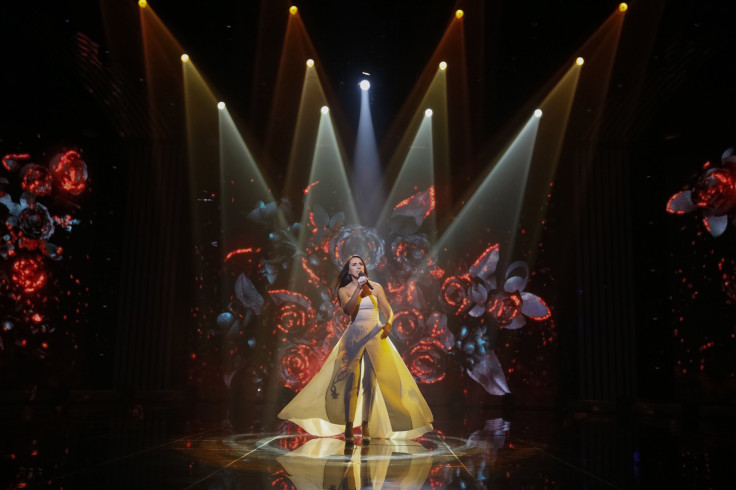Russia Calls Ukraine’s Eurovision Song Entry On Crimean History ‘Politicized’

It’s usually a contest full of bright lights, powerful vocals and questionable outfits, but this year’s Eurovision Song Contest is shaping up as the next political rift between Russia and Ukraine. Russian officials have criticized Ukraine’s selection of the song “1944” as a political choice.
“A strange choice. I’m sure it is there to once again humiliate Russia. I hope that those in charge of Eurovision do not allow such things on the grounds of their competition,” said Vadim Dengin, the first deputy chairman of the Parliament’s committee on information policy, the Moscow Times reported Wednesday. He said many Ukrainians are suffering under difficult economic conditions and will not be able to “afford to watch” the competition.
Ukraine chose the song “1944” by singer Jamala, whose real name is Susana Jamaladinova, as its official entry Sunday for the Europewide song competition scheduled for May in Stockholm. The song, in both English and Tatar, describes the deportation of Crimean Tatars from their homeland by Joseph Stalin in 1944. Jamala’s relatives were among the 230,000 Tatars who were deported to Central Asia, with many dying during the journey. Crimean Tatars were not allowed to return to their homes on the peninsula until the 1980s.
Following Russia’s annexation of Crimea from Ukraine in March 2014, Jamala has not been able to see some of her own family that has remained in Crimea. In the song she sings, “When strangers are coming, they come to your house, they kill you all/And say, we’re not guilty, not guilty.” The geopolitical implications of the song due to recent events have raised Russia’s ire.
Crimean Tatar leaders have heralded the song as an important part of history that much of Europe is not aware of.
“I am confident that Jamala will present with dignity our country at the Eurovision. I believe that the whole world will know about ‘1944,’ ” Mustafa Dzhemilev, a prominent Crimean Tatar leader and politician, wrote on Facebook, the Kyiv Post reported.
Eurovision songs have touched on political topics in the past. Ukraine’s 2005 entry from the group GreenJolly was one of the most popular songs during the 2004 Orange Revolution.
In response to the Georgian-Russian conflict in 2008, Georgia put forward the group Stephane & 3G’s “We Don’t Wanna Put In” for the 2009 Eurovision Song Contest. With lyrics like “We don’t wanna put in the negative move, it’s killing the groove,” it was read as an overt criticism of Russian President Vladimir Putin. The European Broadcasting Union decided the song went against the rules of competition and Georgia withdrew its entry.
The union said it would review all of this year’s entries to ensure they are not “political messages,” Agence France-Presse reported.
The Eurovision Song Contest began in 1956. Ukraine’s only win came in 2004 with “Wild Dances” by the singer Ruslana, who was active during the country’s Euromaidan revolution that began in 2013.
© Copyright IBTimes 2024. All rights reserved.












